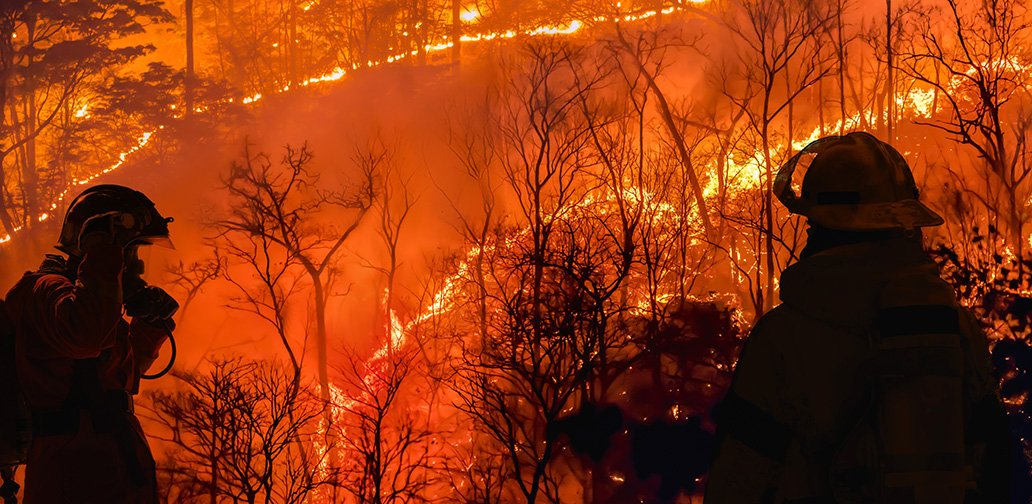Minister for Indigenous Australians
GREG JENNETT, HOST: All right, so as we sit at the top today, we have Senators all around us this afternoon. As it edges closer to wrapping up its week with a little acrimony and not a whole lot to show for it. The Minister for Indigenous Australians, Malarndirri McCarthy, has just come from the Chamber. She’s in the studio with us now and we’ll welcome you back once again.
MALARNDIRRI McCARTHY, MINISTER FOR INDIGENOUS AUSTRALIANS: Hello, Greg.
GREG JENNETT: Senator –
MALARNDIRRI McCARTHY: Surrounded by Senators, I hope it feels good.
GREG JENNETT: That’s a wonderful feeling. What’s not to love about the Senate? We just had your colleague Tim Ayres here and I won’t dwell too much on the broader reflections of the week in the Senate, but we discussed how spectacularly unproductive it was. You’re not going to counter that, are you?
MALARNDIRRI McCARTHY: Well, it’s been a tough week, it always is. And as Australians know, the Senate has many Senators who think very differently. We clearly don’t have the numbers as a government and we do rely on the crossbench and we do rely on the Greens, and sometimes it’s difficult.
GREG JENNETT: Time for a fundamental recalculation of strategy in the sense.
MALARNDIRRI McCARTHY: Oh, not at all. Every day is filled with constant diplomacy, negotiations. There are so many bills to consider, so many motions, so you’re constantly interacting at every level with the crossbench and it’s just what we need to do.
GREG JENNETT: But there’s been a shift in the dynamic where now it’s-sure, you’re entering the negotiations, but it’s not being reciprocated.
MALARNDIRRI McCARTHY: Well, sometimes we win and sometimes we don’t win, but we always keep going. And that’s just the reality of working in the Senate because there’s always something that has to pass and there’s always even the crossbench and the Greens and the Opposition need things and there is always negotiations to try and see if we can get what we want.
GREG JENNETT: All right, love it and all, but let’s move on from the Senate. Let’s talk about your portfolio, and you’ve been asked about this in the Parliament this week. For those outside of the Northern Territory, land councils, plural, are very important organisations there, and the questions this week have concerned the Central Land Council. You’ve been asked about this by Senator Nampijinpa Price. There’s been a change of leadership at the Central Land Council, ending the chairmanship of Matthew Parker.
MALARNDIRRI McCARTHY: Palmer.
GREG JENNETT: Palmer, sorry. Yes, you’re correct. Now, you said yesterday you’d seek a briefing. Does this mean you’d been unaware of those ructions at the time yesterday?
MALARNDIRRI McCARTHY: Well, the question to me in the Senate was, was I aware prior to the Central Land Council meeting if a motion was going to be put against Mr. Palmer, to which I replied ‘no’, and that was a very honest and straightforward response. Clearly, by the time we sat in the Senate, the Central Land Council had put out a press release saying who was the new chair. And it’s not unusual for land councils to actually write to me to inform me, which they then did –
GREG JENNETT: Should they have done that –
MALARNDIRRI McCARTHY: – to inform me of the new chair.
GREG JENNETT: Sorry to interrupt. Should they have done that a little sooner? It’s an important position. You’re the Federal Minister. Everyone knows what time question time begins in Canberra. Do you understand why?
MALARNDIRRI McCARTHY: Look, they did it within 24 hours. I don’t think they could have done it any faster.
GREG JENNETT: What do you understand of the circumstances and issues that have led to this vote on the Council? Is it dysfunctional in any way?
MALARNDIRRI McCARTHY: Well, the former chair, now former chair, did visit Canberra last week and both he and Senator Price came to my office and he spoke about wanting to have a breakaway land council. I thought it was curious that the chair of the Central Land Council was raising that, and he also had three Arrernte elders with him to speak about their concerns. I listened respectfully to the issues that they raised and of course I listened to the CLC and the CEO as to the issues they raised. And I’m very conscious, Greg, just for your listener’s sake, that I’m treading very carefully here because I’m conscious that there is legal proceedings underway between Senator Price and the CEO of the Central Land Council. So, what I try to do is listen to both sides, which is what I have done, and to try to make my assessment from that.
GREG JENNETT: Thanks for pointing that out. And I really don’t want to tread into areas which might be legally dangerous. But is disintegration, the breaking up of the Central Land Council still a live issue as far as you’re aware?
MALARNDIRRI McCARTHY: Well, I think it’s a conversation you might need to have with the Central Land Council. This was obviously what the now former CLC chair had raised last week in the meeting with myself and Senator Price and the three Elders. And you know, that is a conversation that, you know, a number of groups often raise at different times. So, what I suppose happened is that the Central Land Council has spoken about some of the issues they’ve dealt with. Again, I don’t want to go into any details with that because I’m very conscious of the legal parameters here. But according to the agency – the NIAA, processes were done appropriately in terms of the Central Land Council’s conduct of its meeting.
GREG JENNETT: Right, because you made reference yesterday to election processes for the various land councils. Are they flawed?
MALARNDIRRI McCARTHY: They’re not flawed. What I’ve dealt with is, in this instance with the Anindilyakwa Land Council, which is one of the four land councils in the Northern Territory. They all come under the Aboriginal Land Rights Act, which the Commonwealth has responsibility for. And so the Anindilyakwa Land Council has been put on notice in terms of meeting the requirements of a national audit and I’ve put them on notice on that, that they must adhere to the, to the recommendations of the audit, and I believe that that’s a conversation that’s ongoing.
GREG JENNETT: All right. It does sound like an evolving piece of work.
MALARNDIRRI McCARTHY: Well, it’s just my job as Indigenous Australians Minister, Greg, I don’t think anyone else would want that. It’s just what I have to do. I have to make sure that our organisations are accountable and I’m doing exactly that.
GREG JENNETT: All right, well, thanks for laying that out. Hopefully, it’s illuminating to Territorians in particular. Onto an initiative, not especially large, but you made an announcement earlier this week about the most remote community stores, groceries and supermarkets and the like, which suffer from food insecurity. I think the addressing of this problem also, it could potentially affect up to 55 locations. Just explain where you’re up to with addressing food insecurity in those communities.
MALARNDIRRI McCARTHY: One of the areas that I’ve asked the agency to look across is the remote and regional stores that we have across Australia. In particular, in the north, with the wet season fast approaching, flooding was a significant cause of damage for the stores, but it was also the significant cause of isolation where places like Ngukurr, Minyerri in Far North Queensland, Cape York, over to the Kimberleys were cut off as a result and therefore no food was available. So, we had to look at flying in food. So, these are the things I’m looking at now, is how can we ensure there is enough food to prepare for the summer. But also the areas in the south that are affected by fires when roads are cut off and they too are also damaged. So, we are working on that now, Greg.
GREG JENNETT: So, is that going to entail more assets, dedicated trucks, choppers? I’m not sure what it is.
MALARNDIRRI McCARTHY: Well, initially, in the first instance, it really will be about, you know, the huge freezers that we have in our remote communities to be able to hold more than just the three months, maybe that they can hold, if they can hold more, to give us time if in an emergency or if in a cyclone, we still have available foods and all sorts of necessary goods for remote and regional Australians.
GREG JENNETT: All right, sounds like important work. We might wrap it up there. I’m sure you have places to be and a great sense of relief washing over you. Malarndirri McCarthy, at the end of this week. Thanks for finding some time for us.
MALARNDIRRI McCARTHY: Thank you.







